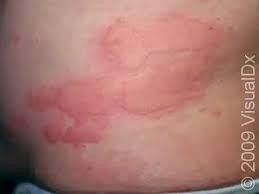Following a cardiac catheterization and placement of a stent in the right coronary artery, the nurse administers prasugrel, a platelet inhibitor, to the client. To monitor for adverse effects from the medication, which assessment is most important for the nurse to include in this client's plan of care?
Observe the color of urine.
Assess skin turgor.
Measure body temperature.
Check for pedal edema.
The Correct Answer is A
To monitor for adverse effects from prasugrel, a platelet inhibitor, the nurse should prioritize assessing for bleeding or abnormal bleeding tendencies. Therefore, observing the color of urine is the most important assessment among the options provided.
Changes in urine color, such as the presence of blood or dark-colored urine, can indicate internal bleeding or bleeding in the urinary tract, which can be a potential adverse effect of platelet inhibitors. It is crucial to monitor for signs of bleeding to ensure the client's safety and intervene promptly if necessary.
Nursing Test Bank
Naxlex Comprehensive Predictor Exams
Related Questions
Correct Answer is A,B,C,D,E
Explanation
A) This is because the client is experiencing an allergic reaction to piperacillin, which can be life-threatening. The nurse should stop the infusion immediately to prevent further exposure to the drug and assess vital signs to monitor for signs of anaphylaxis, such as hypotension, tachycardia, wheezes, or stridor.
B) Assessing vital signs is a priority to determine the severity of the reaction and the client's overall condition.
C) The nurse should contact the healthcare provider to report the situation and obtain orders for treatment, such as antihistamines, corticosteroids, or epinephrine.
D) The nurse should initiate an adverse event report to document the incident and follow the facility's protocol for reporting medication errors.
E) The nurse should also document the reaction to the drug in the client's chart and notify the pharmacy to avoid future administration of piperacillin or related antibiotics.

Correct Answer is D
Explanation
Situation: Increasing confusion of the client.
The nurse should start by providing the current situation, which is the client's increasing confusion. This is crucial information as it indicates a change in the client's condition and may require immediate attention.
Background: Fall at home as reason for admission.
Next, the nurse should provide the background information, which includes the reason for admission, in this case, the fall at home. This helps the healthcare provider understand the context and potential contributing factors to the client's current condition. Assessment: Currently prescribed medications.
After providing the background, the nurse should discuss the assessment findings. In this case, it would be appropriate to mention the client's currently prescribed medications. This information can help the healthcare provider assess for any medication-related issues or interactions that could be contributing to the client's confusion.
Recommendation: Client's healthcare power of attorney.
Lastly, the nurse should provide the recommendation, which in this case is the client's healthcare power of attorney. This information is important as it identifies the designated decision-maker for the client's healthcare decisions and can assist the healthcare provider in involving the appropriate person in the care planning process.

Whether you are a student looking to ace your exams or a practicing nurse seeking to enhance your expertise , our nursing education contents will empower you with the confidence and competence to make a difference in the lives of patients and become a respected leader in the healthcare field.
Visit Naxlex, invest in your future and unlock endless possibilities with our unparalleled nursing education contents today
Report Wrong Answer on the Current Question
Do you disagree with the answer? If yes, what is your expected answer? Explain.
Kindly be descriptive with the issue you are facing.
